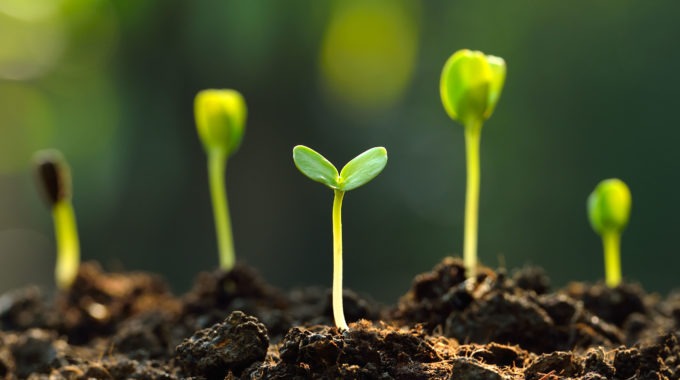Sprout Producer Program: growing good
Have you ever dreamed of running away to Tasmania and starting your own sustainable farm? For some, this dream has become a reality thanks to the Sprout Producer Program. The program is run by Sprout Tasmania, a unique non-profit organisation set up to foster and support the state’s start-up growers and producers. With a sustainable ethos and a passion for fostering community, Sprout’s goal is simple: “growing good”.
Sprout was created by Tony Scherer and Dr Alice Percy in 2011. Scherer is a life-long vegetable grower and true pioneer of organic farming. When he met Dr Percy, who specialises in sustainable food production, the two hit it off. Together, they were inspired to start a grassroots movement that would help aspiring farmers to turn their ideas into thriving, sustainable small businesses. Sprout has now supported a wide variety of entrepreneurs from all walks of life and at all stages of their farming journey.
Along with helping small producers to succeed, Sprout also provides a voice for small-scale farmers. The organisation advocates for growers to ensure governments support the needs of this important sector of the Tasmanian economy. There are also regular events and workshops where producers can share knowledge and build their network, an annual conference and an annual Sprout Small Producer of the Year award.
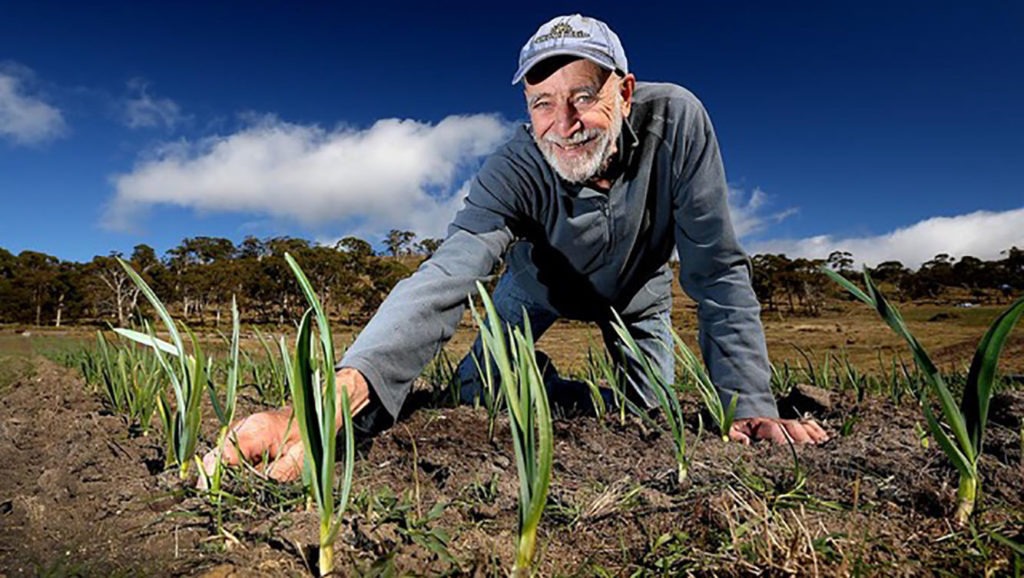
Opportunity to grow
The Sprout Producer Program is a one-year scholarship program for growers at all stages, from beginners to the more established. The program offers educational resources covering both on-farm topics such as soil health and beekeeping, and off-farm topics like logistics and marketing. There are also field days and mentoring sessions that offer support and learning opportunities to help producers grow more sustainably.
“Sustainable farming is definitely our ethos,” says Ollie Benson, Sprout Producer Liaison who helps to run the program. “Of course, when people apply to get in the program, we don’t stipulate that they have to be farming organically. But we definitely look at producers who are transitioning to more sustainable methods of farming.”
Anyone is welcome to apply for the Sprout Producer Program. Growers and farmers at all stages of their farming journey making up each year’s cohort of students.
“It could be farmers that are doing really well and kicking lots of goals, but could be looking to diversify,” Benson says. “Or they might want to build a stronger network. Or they could be new growers who are facing challenges and need a bit of assistance.”
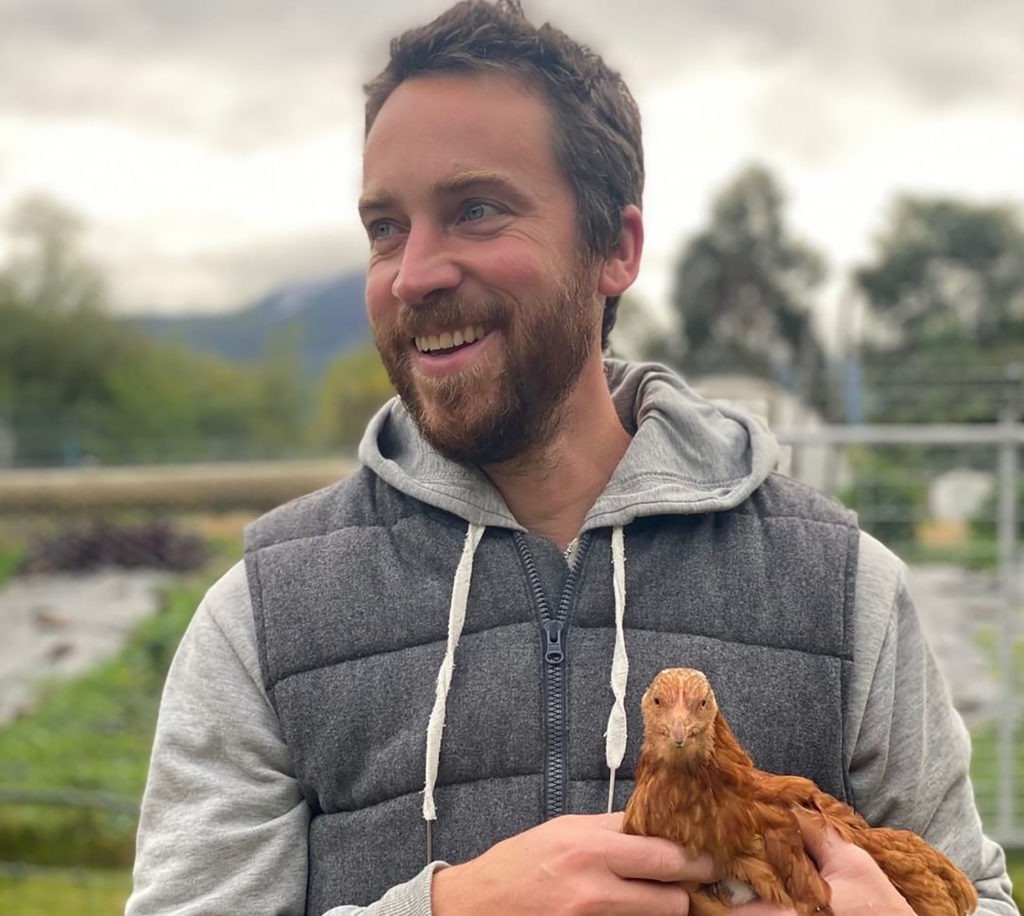
Breaking ground
But before you start packing your bags and booking a flight to Tassie, this isn’t a program for those whose farming goals have yet to develop beyond a hopeful dream.
“While we look at every application, if you were living in Sydney and thinking of buying a property down here to start farming, we would want you to be on the property and to have at least begun something,” Bensons says. “But you don’t necessarily have to be growing.”
One of the producers in this year’s cohort is Libby Graham of South Arm Farm, a one-acre market garden on the South Arm Peninsula. At the beginning of the year, she had yet to break ground or set up irrigation, but she had done her research and was on her way.
“Although she didn’t have crops in the ground and she hadn’t started selling anything, we knew through the application process that this was the year for her and it was going to be a big year,” Benson says. “She was ready to go. But if you weren’t here, and you were thinking about farming, we would want you to be a bit further down the road before applying.”
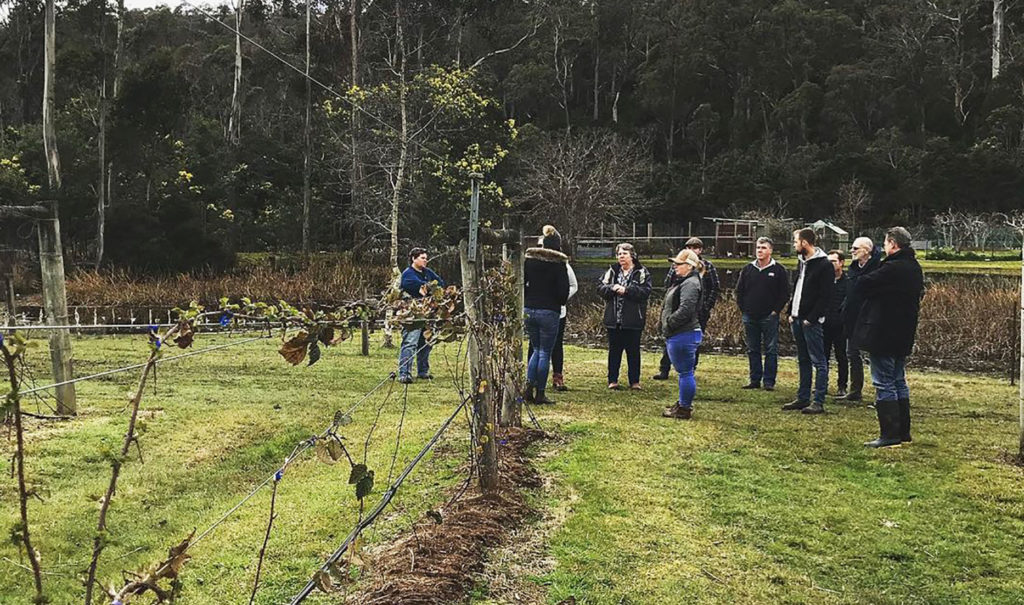
A safe space
Over the course of the year, successful applicants gain access to core and elective educational units, which are offered online. There are also farm field days where each of the participants hosts a field day at their farm for all the others in the program.
“We visit that farm, and we hold a group analysis,” Benson says. “It’s a safe space where we can look at the challenges they’re facing and the successes they’ve had, and we talk about where they want to go. It’s also an opportunity for all the other farmers to learn from it.”
Program participants get to meet other producers, chefs and potential customers. They’re given the opportunity for media coverage and gain access to experienced mentors. There’s also group of expert assessors who work on a volunteer basis, looking at the completed educational units and giving feedback to each of the participants.
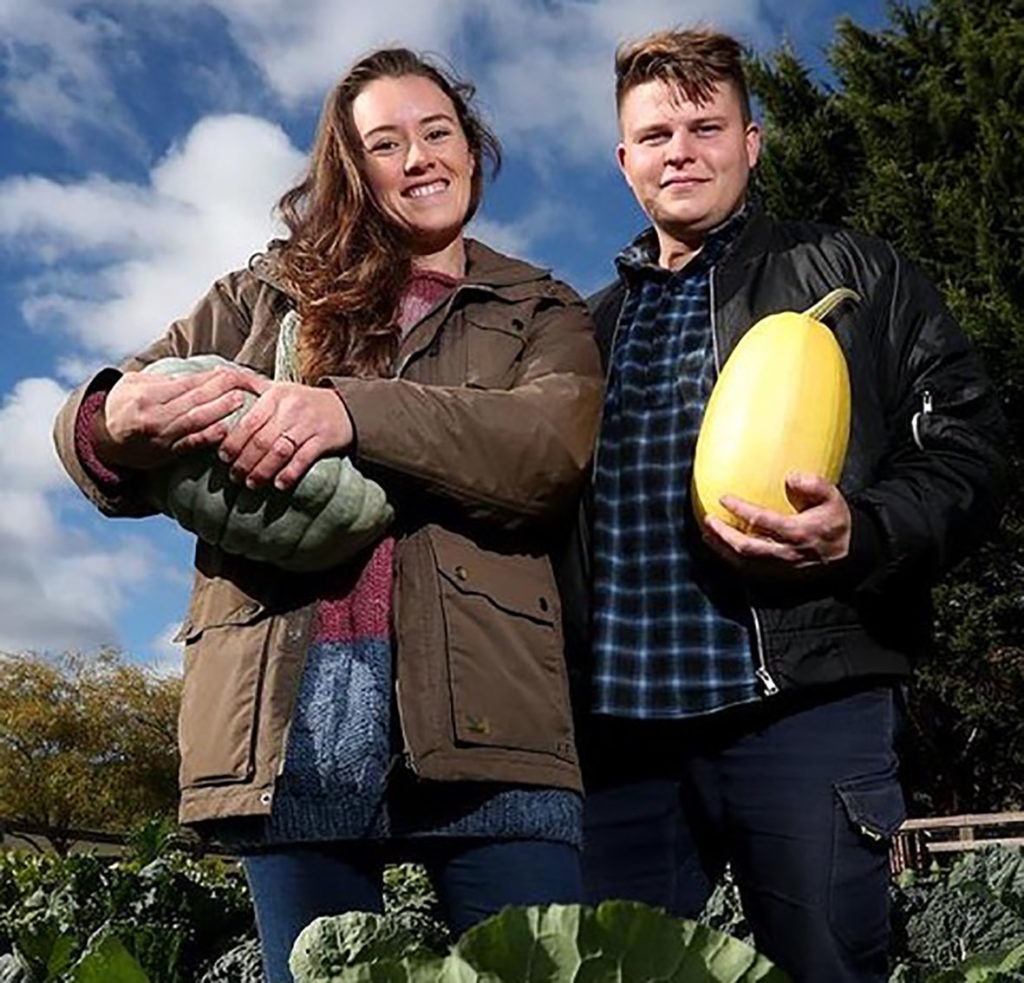
Building a community
On any given year, the program’s cohort is made up of a range of producers, from market gardeners and pastured egg producers to berry growers and duck, sheep or cattle farmers. It’s this diversification of individual stories and farming backgrounds that offers genuine learning opportunities, as well as fostering a stronger farming community.
“While everyone might be doing slightly different things, they’ve still got a lot in common,” Bensons says. “They learn from each other. Once they’ve completed the program, they’re part of our alumni. Each year they catch up with each other, and many stay in touch.”
Two producers from the 2018 cohort who have built a strong and beneficial relationship are Liz and Rick Mahnken from Summerlea Farm and Lauren Byrne and Michael Layfield of Felds Farm. Byrne and Layfield had a market garden in the midlands of Tasmania and were looking to relocate. The Mahnkens have a larger farm north of Launceston where they run cattle. They offered to lease four acres of their property to allow Felds Farm to grow.
“While they were in the program, they got to know each other and had become really good friends,” Benson says. “After Summerlea Farm leased a couple of acres of property to Felds Farm, Felds was able to keep market gardening and has actually grown in size. That type of share farming, I think it’s just a beautiful story.”
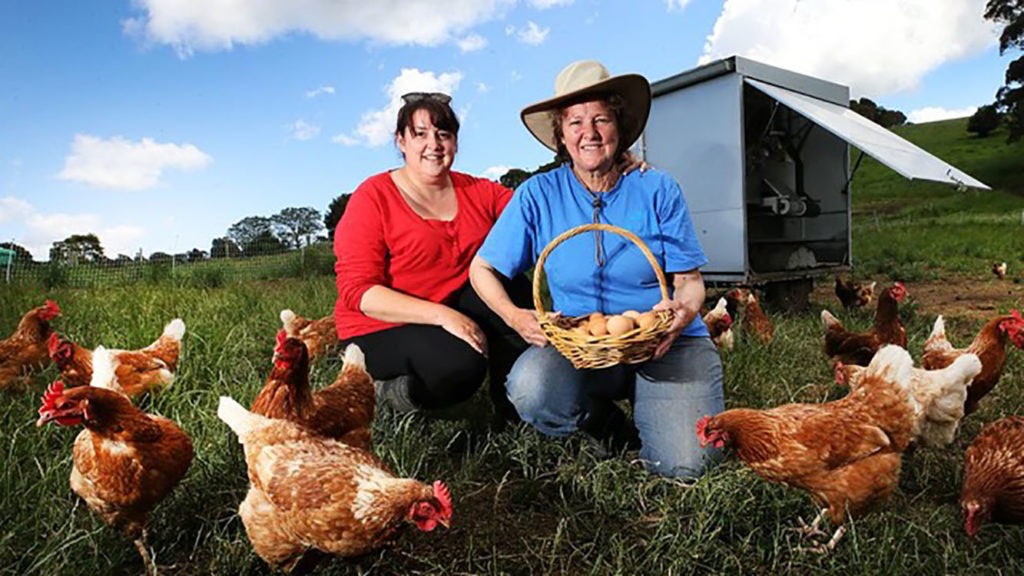
One voice
This thriving network has seen many producers go on to succeed, with some being nominated for or even winning a delicious. produce award. But the key benefit of the program is the fostering of community and the building of beneficial networks.
“We interviewed Tony our co-founder to make a video for our 10-year anniversary celebration,” Benson says. “He made this amazing point that for many small-scale farms, if they’re standing on their own, they don’t have much of a voice. If they have any challenges or problems, it’s hard to be listened to. But if you get 100 or 200 or maybe one day 1000 of these small-scale farmers in a room together, boy, they’ve got a voice. That’s our goal. Our aim is to create that network so that together we’ve got this voice.”
To find out more about Sprout Tasmania, its producer success stories and the Sprout Producer Program, head to sprout.org.au. Applications for 2022 close on September 27.


